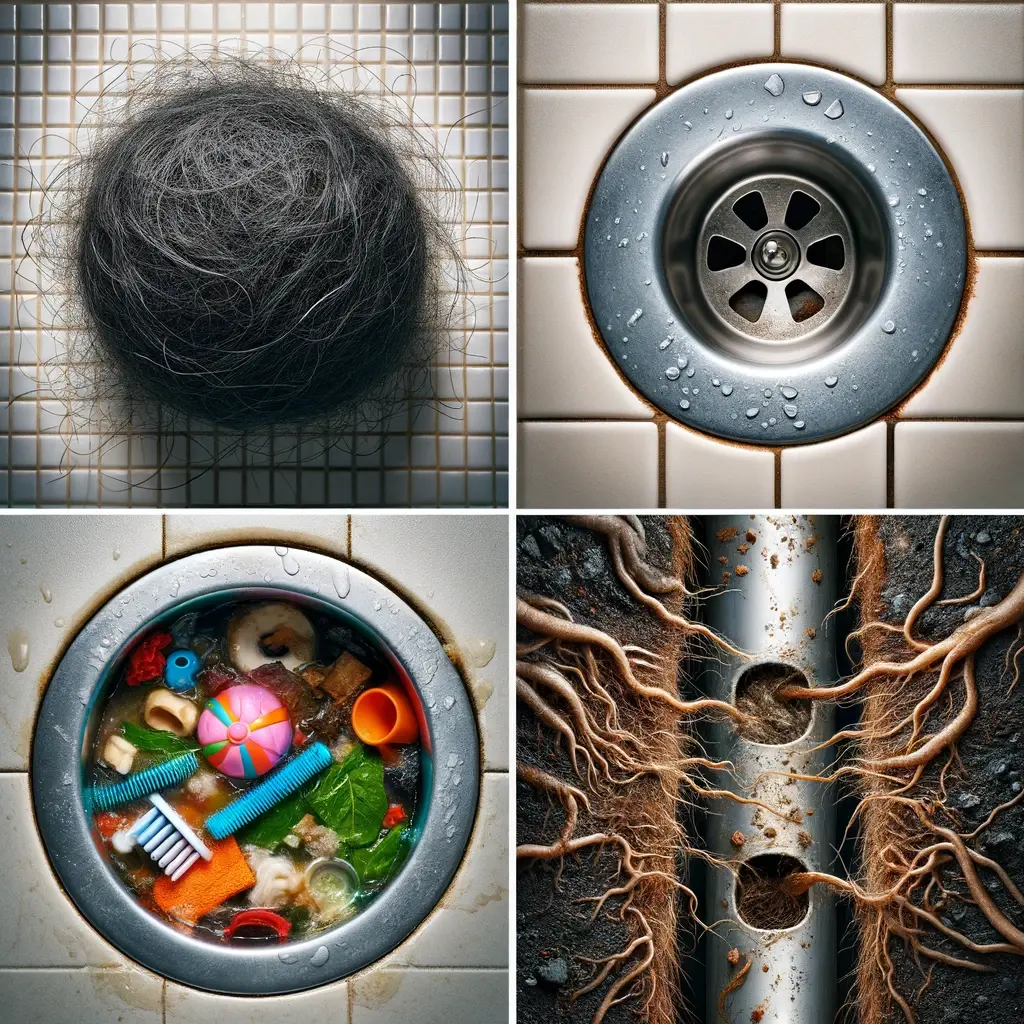The Ultimate Guide to Drain Cleaning: Types of Clogs You Can Encounter at Home
As the old adage goes, 'prevention is better than cure'—and this couldn't be more true when it comes to maintaining your home's drainage system. Drain cleaning is a vital practice to prevent clogs and ensure smooth drainage.
You're likely aware that clogs are a common occurrence, but do you really understand the different types that can plague your system? From hair and grease blockages in the bathroom to food waste and mineral build-ups in the kitchen, each type of clog requires a specific approach for effective removal.
As a professional in the field, I've dealt with various clog types, and I'm here to share my insights. Stick around and you'll soon see how a little knowledge can go a long way in preserving the health of your drains.
Understanding Common Household Clogs
To effectively deal with household clogs, you need to understand the most common types and how they form. Hair, food particles, grease, and soap scum are your usual suspects. They gradually build up, obstructing the flow of water.
Hair clogs usually occur in bathroom drains, while food and grease clogs are common in kitchen sinks. Soap scum can accumulate anywhere soap is used. You're not alone in this; every homeowner faces these issues.
It's crucial to take early steps to prevent these buildups. Regularly clean your drains, use drain covers to catch debris, and avoid pouring grease down the sink.
Effective Drain Cleaning Techniques
Leveraging effective drain cleaning techniques can help you combat clogs and maintain the health of your home's plumbing system. Regularly flushing your drains with boiling water is a simple, yet powerful way to dissolve minor blockages.
If you're dealing with stubborn clogs, a plunger may be your best friend. For tougher situations, a plumber's snake or hand auger can reach deep into your pipes to remove the obstruction.
Chemical drain cleaners are a last resort, as they can damage your pipes if used excessively. Remember, prevention is key. Don't pour grease or large food particles down your sink and consider installing a drain strainer to catch debris.
You're part of a community that values a well-maintained home.

